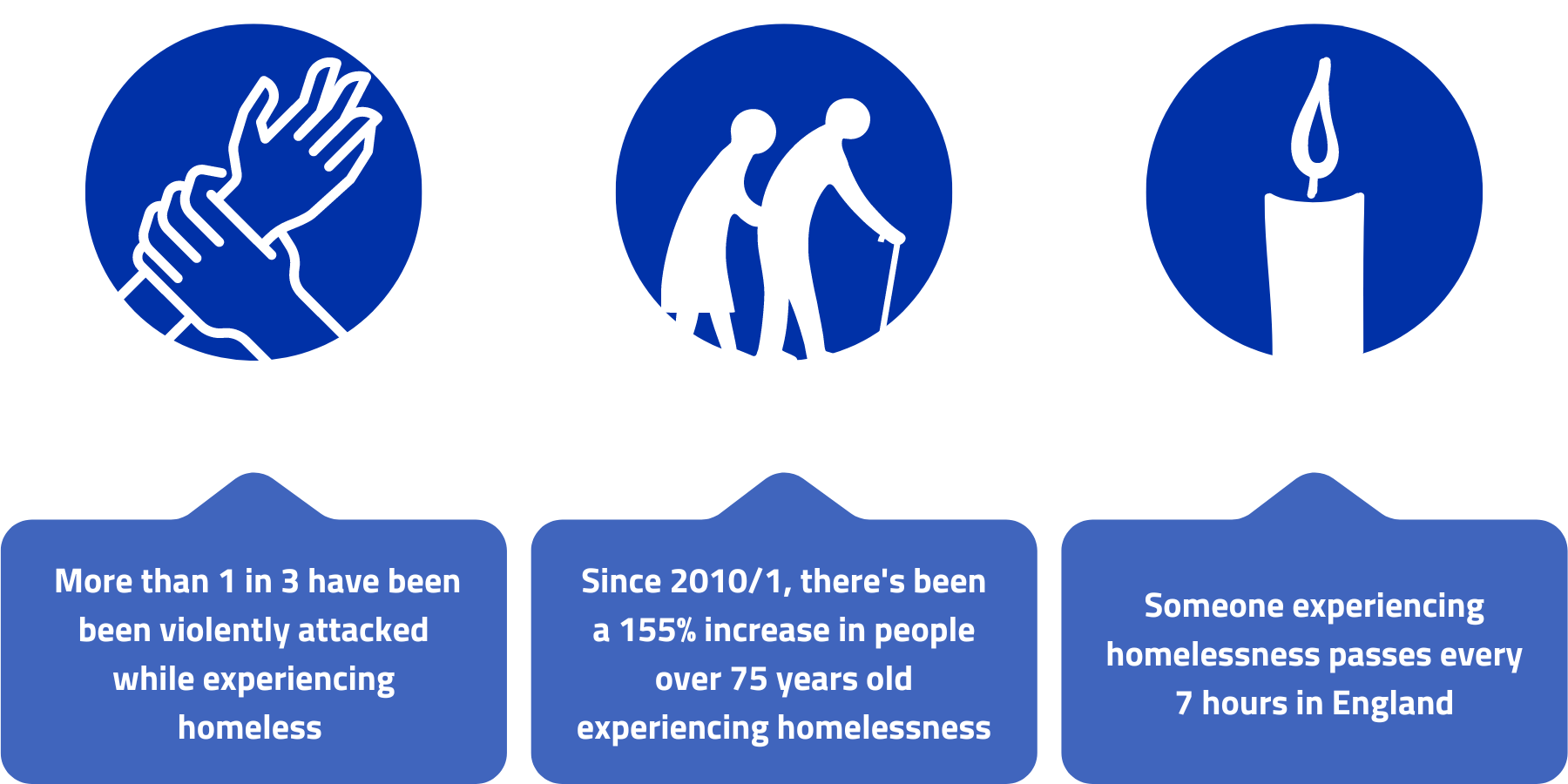
Homelessness is a public health issue.
On any given night in England, 2,440 people are sleeping rough on our streets.
The cold, noisy and dangerous conditions of the city make this a harsh way of life. Data tells us that the impact of rough sleeping on public health is shocking.

These factors can have strong effects on a person’s health. Because of this, when homelessness is so wide spread across London affecting almost 1 in 50 people, it becomes a public health issue.
How homelessness impacts physical health
Compared to the general population, people experiencing homelessness are twice as likely to have a physical health condition. This can be pre-existing (potentially leading to homelessness due to difficulties in finding work) or brought on by the tough conditions of the streets.
Additionally, many people struggle to receive support for health concerns once living on the streets. While people don’t need an address to get support from the NHS, it can be tricky to access when you’re sleeping rough.
For example, people may struggle to find information on where to go when unwell or could fear stigma from healthcare professionals. This allows health issues to worsen over time and cause greater damage for people sleeping rough.
This can also lead to greater strain on the NHS as more intensive care is needed to support people by the time health issues are addressed.
We saw this with Sean, who we supported during the pandemic. Sean had been homeless for decades and suffered with untreated eczema in his legs and feet which was causing him a lot of pain. After gaining his trust, we were able to refer him to Great Chapel Street Medical centre.
Discover more stories from our centre
Unfortunately, not everyone is able to get support like Sean. Due, in part, to poor health concerns, the average age of death for people experiencing homelessness is just 44 years ago, about half the average age for a non-homeless person.
Simply put, if people aren’t supported, homelessness can kill.
How homelessness impacts mental health
Poor mental health is also a common cause and outcome of homelessness.
The latest data shows us that over 50% of people sleeping rough have a diagnosed mental health condition. Again, people struggle to seek out support and can instead turn to substance to manage their symptoms. This can worsen mental and physical health and have devastating effects.
Clearly, homelessness can present a range of issues for our health. But with the right support, things can look better.
What can we do?
Homelessness and health are two complex issues but we can make a difference by working together.
Our Advocacy work focuses on addiction campaigning and how best to support people. You can find out more and get involved here.
We also offer support in our centre, including therapy sessions and weekly visits from a nurse. If someone needs more intensive care, we can refer them to a medical centre.
If you see someone sleeping rough face a medical emergency, call 999.
